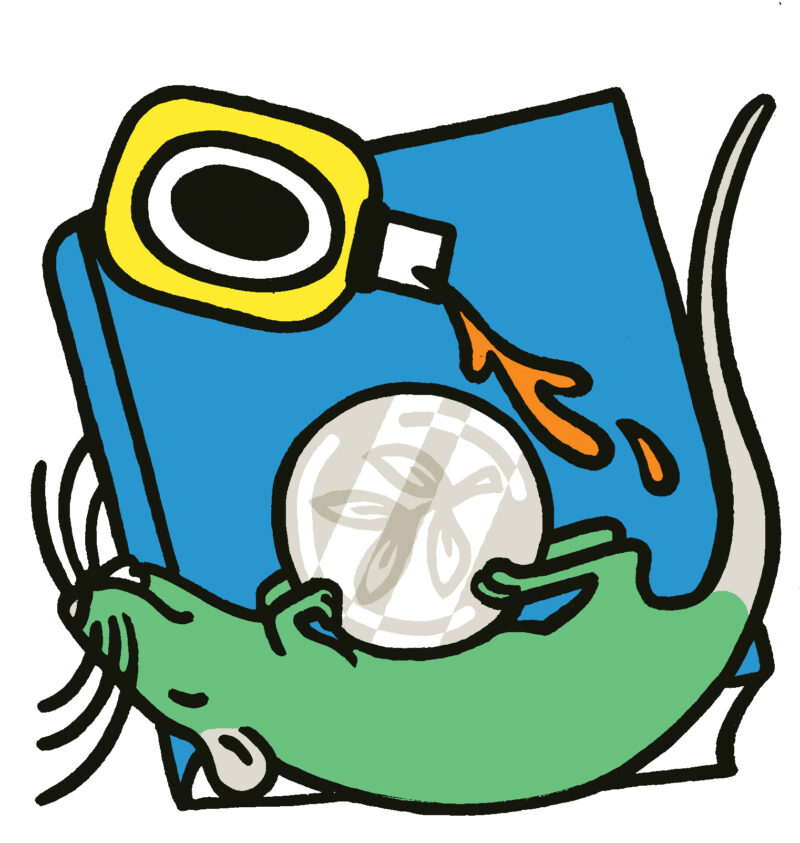The unnamed narrator of The Coin, Yasmin Zaher’s debut novel, is afflicted by filth. Filth is an environmental hazard of city life, evident in the “dead rats, diapers, toothpicks, and drug baggies” strewn on the sidewalk. In the spectacle of filth, what most unnerves her is poverty, as poverty begets filth, and filth besmirches character. Cleanliness, then, becomes a moral imperative for the narrator—the daughter of wealthy Palestinian parents—who protects her purity through obsessive rituals like exfoliating her entire body with a Turkish loofah (which she dubs “the CVS Retreat”) and covering her back with Cattier toothpaste. “You will see that I’m a moral woman,” she says, “that all I want is to be clean.” Her affliction reaches an unbearable apex in New York, where she recently immigrated from Jerusalem. There, she feels her body “beginning to rot.” This disorientation is a symptom of a family curse, which is traced back to a small silver shekel that she swallowed as a child. She is convinced the coin is embedded in her back, in a spot that’s impossible to clean. The shekel, an unsubtle metaphor for intergenerational wealth and trauma, belies her Janus-faced fate in the US: “America was both the key and the curse,” she says. And again, later: “In my family, the curse was also the key.” But the narrator, unlike most body-horror victims, is not besieged by an existential fear of her accursed flesh. She is, on the contrary, calm and methodical about her ritual. Eventually, she even tries to “create a new natural order” in her apartment, hoarding dirt and plants to simulate a wilderness that she can control.
Told in a detached first-person narration, The Coin is composed of short chronological vignettes detailing the narrator’s eight months in New York. She spends most of her time teaching at an all-boys middle school; cleaning herself, her classroom, and her home; and avoiding her long-term boyfriend, Sasha. Interspersed throughout are dreamlike sequences that recall her tragic but materially comfortable childhood. At a young age, she and her brother had survived a car accident that killed her parents. “Redeemed by a good inheritance,” she lives off a substantial monthly allowance that she carries in cash in her mother’s hand-me-down Birkin. Still, the undisclosed amount is not enough to sustain her spending, and she’s annoyed that it is being withheld from her by her brother. “I was simultaneously rich and poor,” she says. Reminiscent of Moshfegh’s impudent protagonist in My Year of Rest and Relaxation, Zaher’s narrator is mannered and mildly self-aware, more dissociative than deadpan about her recherché wealth and “exotic beauty.”
Because the novel’s events are recounted from a not-so-distant future, suspense is established through what the protagonist chooses to withhold from us. The narrator speaks to “you,” an unidentified confidant who is eventually revealed to be another “I,” a figment of her own psyche. This disjunction reflects the growing rift between her body and mind. Compulsive actions are addressed coolly, and psychosomatic aberrations are attributed to the coin’s tautological presence. A proclaimed hedonist, she is “always ready to fuck” but speaks of sex with pleasureless remove: “He fucked me until I blacked out, not alcoholically, but in the sense that I had transcended the present.” The Coin, like its narrator, is surprisingly minimalist, sedate, and clean, for a story about the squalor of mania and the profound fear of an incurable filth that torments the flesh. Stripped of the traditional conventions of character, Zaher’s narrator is a spirit possessed by surfaces: a free-floating shade clad in designer goods, porous as the scent of her expensive French perfume. A semblance of emotional solidity is attained through her relationship with Trenchcoat, a homeless con man with whom she travels to Paris to partake in a Birkin resale scheme. Even so, Trenchcoat offers a short-lived return to glamor, a temporary distraction from a persistent curse. This excursion only strengthens the coin’s hold on her psyche. In the end, there is no escape, only a return to the self.
Publisher: Catapult Page count: 240 Price: $27.00 Key quote: “Nature is clean. It’s civilization that’s dirty.” Shelve next to: Agustina Bazterrica, Ottessa Moshfegh, Chelsea G. Summers Unscientifically calculated reading time: Four hours at a Turkish hammam before a full-body scrub





